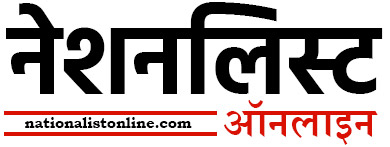VAIBHAV CHADHA
The National LED programme was launched by Prime Minister Narendra Modi on 5th Jan, 2015 at New Delhi with a target of replacing 77 crore incandescent lamps with LED bulbs. PM Modi described the LED bulb as a “Prakash Path” (way to light) while launching the LED bulb distribution scheme under the Domestic Efficient Lighting Programme (DELP).
On March 11, 2016, Sh. Piyush Goyal , Hon’ble Minister of State (Independent Charge) for Power, Coal, New and Renewable Energy and Mines announced the name ‘UJALA’ for the LED based Domestic Efficient Lighting Programme (DELP). The DELP programme was running successfully in more than 120 cities across India. While speaking on the occasion, the Minister said that UJALA will give a new life to already successful DELP programme.
About the Scheme
Unnat Jyoti by Affordable LEDs for All (UJALA) scheme is being implemented by a joint venture of PSUs under the Union Ministry of Power- EESL (Energy Efficiency Services Limited.) A consumer having a metered connection from his Electricity Distribution Company is entitled to get the LED bulbs under this scheme. A consumer can purchase LED bulb either by paying Rs 75-95 (depending on state) upfront per bulb or on an EMI payment under which Rs 10 is to be paid in advance per bulb and the balance amount of Rs 70-85 per bulb can be repaid in 8 easy monthly installments. The consumer needs to carry the copy of Government authorized ID proof for upfront payment and for EMI- a copy of latest electricity bill and Government authorized ID proof is required.

Under UJALA, LED bulbs will not be available at retail stores but shall be distributed through special EESL kiosks and DISCOM offices. The location detail of distribution counter is further available at www.ujala.gov.in. Free-of-cost replacement for LED bulbs will be provided by EESL for a period of 3 years if the bulb stops working due to a technical defect. All replacements shall be done through designated replacement/ distribution kiosks. During the distribution period these LEDs can be replaced from any of the UJALA kiosks. There will be state specific replacement drives, post distribution which will indicate the retails shops or locations where replacement will be available.
Benefits
As on 21st Oct, 2016 number of households participating in UJALA was above 5.7 crores. While the status of total LEDs distributed as on 21st Oct, 2016 07:48 pm across India was 17,27,34,640 which has helped in saving 6,14,58,985 KWh energy per day and has benefitted in saving Rs 24,58,35,940 cost per day. 4,491 MW Peak demand has been avoided by UJALA and environment has gained as 49,782 t CO2 reductions per day have taken place. The state leading under the UJALA scheme as on 21st October, 2016 is Gujarat where 2,65,12,331 LED bulbs have been distributed.
UJALA scheme is a part of the Modi Government’s agenda of spreading the message of energy efficiency in the country. In general we see that day by day the energy consumption is rising and to meet the increased electricity demand, Government has to look towards various sources for generating more electricity. This gives rise to setting up of thermal plants, hydroelectricity plants, nuclear plants…etc. Even when a power plant is planned to be set up, Government has to address further issues such as ensuring availability of coal, uranium…etc. Also high costs of production of dams, environmental problems, and displacement of people are also to be taken care of. But the Modi Government has handled these problems single handedly with the UJALA Scheme. Under UJALA, by providing LED bulbs at very low prices to common masses, Government is not only reducing the electricity Bills of common people and providing them with more money in hand to spend on other things but is also reducing its burden of producing more electricity.
LED bulbs are more energy efficient than an incandescent bulb and consume up to 90% less power than an incandescent bulb. One 9W LED bulb gives the same luminosity as compared to a 100W incandescent lamp and consumes power one tenth than that by an incandescent bulb. Life of LED bulb is also very long; it is around 50 times more than an ordinary bulb and 8-10 times than that of a CFL bulb. With reduced demand for electricity from the consumer’s side the Government will be able to save more money, which it otherwise had to spend on construction of more power plants and other sources of energy production. The scheme also helps in conserving the environment by reducing the use of coal in thermal power plants on one hand and low carbon emission by LED bulb itself on the other. Thus, UJALA scheme can be said to be a major step towards saving energy and conserving Environment.
(Writer is a Research Associate at Dr. Syama Prasad Mookerjee Research Foundation, New Delhi)
